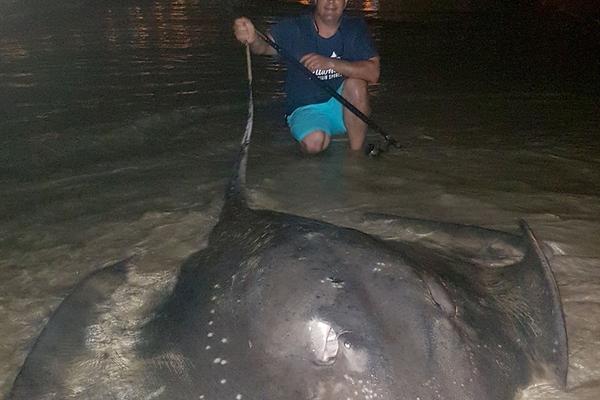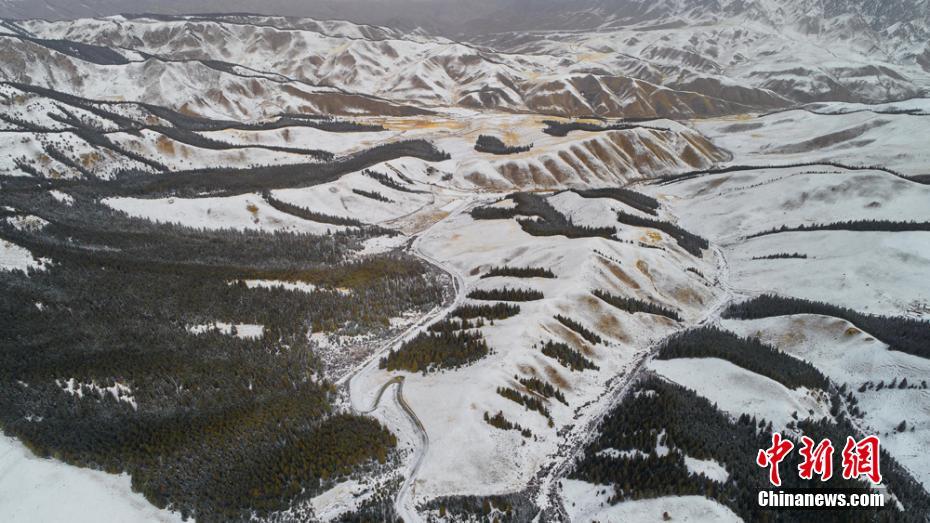Record heat may partlyd sex video gameto blame for the bizarre, historic, and exciting second game of the World Series between the Los Angeles Dodgers and the Houston Astros on Wednesday night.
A record-setting 8 home runs were hit during the course of 11 innings of play. Games with higher temperatures tend to, but don't always result in, a greater number of home runs, since higher temperatures allow balls to fly a bit farther than they would in colder, denser air.
SEE ALSO: The Dodgers just won the hottest World Series game in historyGame Two, which the Astros eventually won, had a starting temperature of 93 degrees Fahrenheit, making it one of the hottest postseason games in the history of the sport. A brush fire was burning within sight of Dodgers stadium, a testament to the extremely hot, dry, and windy conditions at game time.
Some of the homers would've been hit out of the park no matter what the temperature was. However, others, particularly the tying home run by the Astro's Marwin Gonzalez in the 9th inning, might have fallen short of the wall on a cooler day.
 Houston Astros' George Springer celebrates after hitting a two-run home run. Credit: AP/REX/Shutterstock
Houston Astros' George Springer celebrates after hitting a two-run home run. Credit: AP/REX/Shutterstock The first two games of the 2017 World Series took place during an unusual late season heat wave and wildfire outbreak in California.
In fact, Game One set an all-time high temperature milestone, with a first pitch temperature of 103 degrees Fahrenheit. This didn't just break the previous record for the hottest postseason game -- it shattered it. The previous hottest postseason game had a temperature of 94 degrees at first pitch, and it took place in Phoenix in 2001, according to meteorologist Alex Lamers.
On Tuesday, high temperatures reached a record-setting 108 degrees Fahrenheit in parts of southern California, which wasn't just a record for that region: It was also likely the hottest temperature ever observed in the U.S. this late in the year.
Meteorologists and baseball fans have long known that, all things being equal, hot weather is associated with higher scoring games. Extreme heat can help make the difference between a line drive and a shallow home run, since higher temperatures allow balls to travel slightly farther. Cold temperatures, on the other hand, can slightly inhibit home runs. Statistics from games during 2017 show this temperature effect.
This Tweet is currently unavailable. It might be loading or has been removed.
According to mlb.com, major league teams tend to hit better and score more runs during hotter games. "Just 3.1 percent of at-bats ended in a home run at the coldest temperatures; 4.4 percent did at the warmest," wrote MLB columnist Mike Petriello on Oct. 24, comparing games that took place across a range of temperatures.
Given the increased likelihood of more severe and long-lasting heat waves around the world, stemming from human-caused global warming, we might need to get used to games like Wednesday night's.
The World Series now goes to Houston, where temperatures are cooler, and a domed stadium means the climate will be more controlled. In other words, don't expect another topsy turvy home run derby of a game to occur.
Then again, with these two teams, you never know...
(Editor: {typename type="name"/})
 Climate change turns large green sea turtle population female
Climate change turns large green sea turtle population female
 Snoop Dogg can't handle this election, asks Drake to help him move to Canada
Snoop Dogg can't handle this election, asks Drake to help him move to Canada
 Don't believe the tweets claiming 'The Simpsons' predicted Trump's win
Don't believe the tweets claiming 'The Simpsons' predicted Trump's win
 You can now buy a refurbished iPhone 6S or 6S plus directly from Apple
You can now buy a refurbished iPhone 6S or 6S plus directly from Apple
 Chinese scientists have cloned two monkeys to advance human medicine
Chinese scientists have cloned two monkeys to advance human medicine
Best Garmin deal: Save over $30 on Forerunner 55
 SAVE OVER $30:As of Feb. 27, the Garmin Forerunner 55 fitness tracker is on sale at Amazon for $169.
...[Details]
SAVE OVER $30:As of Feb. 27, the Garmin Forerunner 55 fitness tracker is on sale at Amazon for $169.
...[Details]
The Chinese city that makes the world's flags knew Trump would win
 As the world held their breath for the past 24 hours awaiting the results of the U.S. elections, one
...[Details]
As the world held their breath for the past 24 hours awaiting the results of the U.S. elections, one
...[Details]
Twitter's revenue guru and chief nice guy is out
 Twitter's Chief Operating Officer Adam Bain is leaving the company after six years, he announced via
...[Details]
Twitter's Chief Operating Officer Adam Bain is leaving the company after six years, he announced via
...[Details]
NBA vet David West obliterates 'fairytale' of post
 NBA veteran David West articulated the thoughts of many on Wednesday. The Golden State Warriors forw
...[Details]
NBA veteran David West articulated the thoughts of many on Wednesday. The Golden State Warriors forw
...[Details]
Today's Hurdle hints and answers for March 18, 2025
 If you like playing daily word games like Wordle, then Hurdle is a great game to add to your routine
...[Details]
If you like playing daily word games like Wordle, then Hurdle is a great game to add to your routine
...[Details]
Despondent parents wonder how to explain the Trump's win to their kids
 As the results of the 2016 presidential election unfolded and it became clear Donald Trump would be
...[Details]
As the results of the 2016 presidential election unfolded and it became clear Donald Trump would be
...[Details]
Sports world reacts to Donald Trump's big win
 The sports world had pretty much every reaction you could imagine to Donald Trump's victory on Tuesd
...[Details]
The sports world had pretty much every reaction you could imagine to Donald Trump's victory on Tuesd
...[Details]
Eerie photos from the aftermath of the Hillary Clinton party that wasn't
 The Jacob Javits Center was quiet and deserted on Wednesday afternoon, but an alternate reality was
...[Details]
The Jacob Javits Center was quiet and deserted on Wednesday afternoon, but an alternate reality was
...[Details]
MapQuest is letting you name the Gulf of Mexico whatever you want
 Younger readers may not remember this, but Google Maps wasn't always the default way to look up how
...[Details]
Younger readers may not remember this, but Google Maps wasn't always the default way to look up how
...[Details]
This website makes the impending Trump presidency all too real
 Maybe this was all a dream. Maybe Hillary Clinton is celebrating her victory and you were just fast
...[Details]
Maybe this was all a dream. Maybe Hillary Clinton is celebrating her victory and you were just fast
...[Details]
Afghanistan vs. Australia 2025 livestream: Watch ICC Champions Trophy for free

The 5 stages of Trump grief: How to go through them as fast as possible

接受PR>=1、BR>=1,流量相当,内容相关类链接。